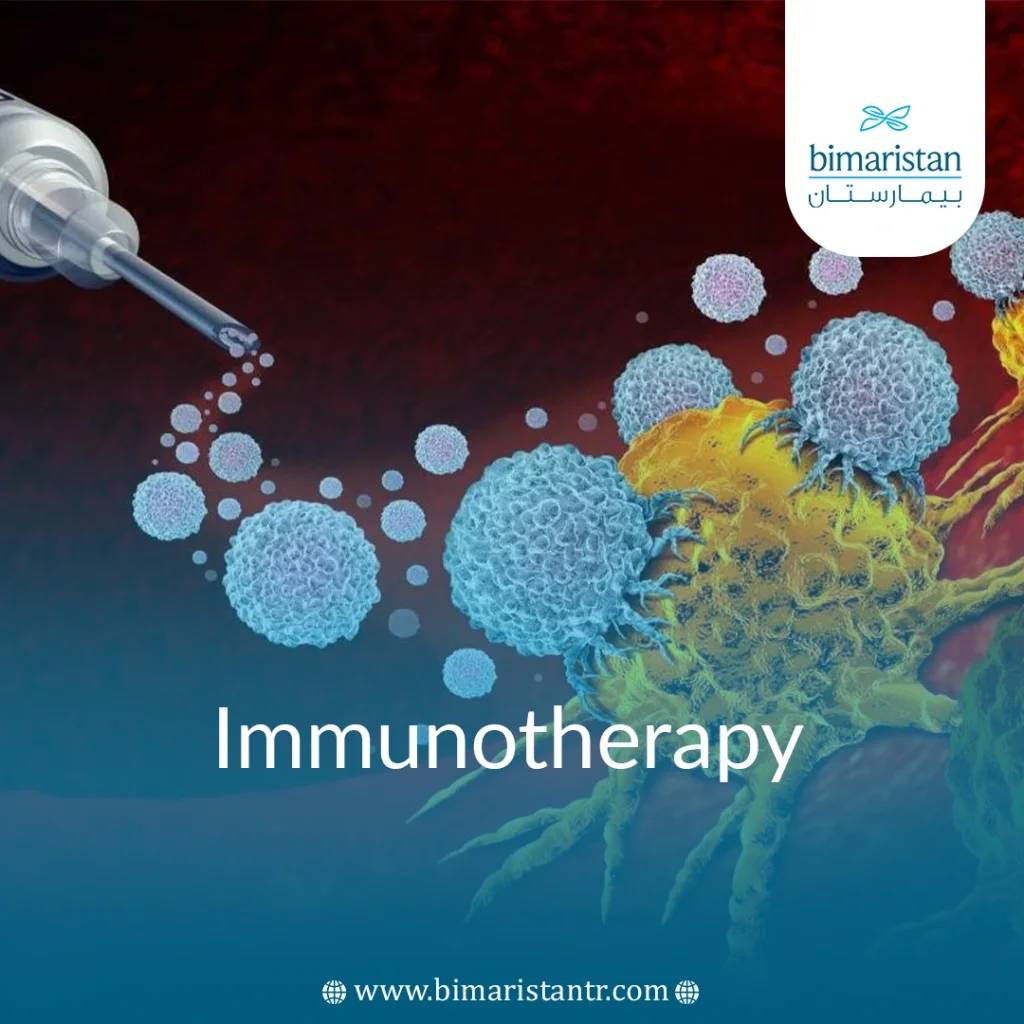Turkey is a global medical center specializing in cancer immunotherapy, a treatment method that affects the immune system within the human body to eliminate cancer.
In this article, we will learn all the details about this type of treatment in terms of the medical care provided and the potential costs.
What is cancer immunotherapy?
Cancer immunotherapy, also known as biologic therapy, is a treatment method that affects the immune system within the human body to eliminate cancer. It is mainly based on stimulating, strengthening, and enabling the immune system to perform its functions more effectively.
Types of cancer immunotherapy
There are several different types of immunotherapy for cancer treatment, including:
- Biological response modifier therapy
These modifiers include cytokines, such as Interferons and interleukins. These chemicals have no direct effect against cancer but indirectly stimulate the immune system’s cells to attack it. The patient takes large amounts of them to activate the immune system cells.
- Catalysts for colony formation
Blood cells are manufactured in the body’s bone marrow, which is the soft, spongy material inside the bone cavity where they are produced.
There are three main types of blood cells: White blood cells, whose job is to fight infections.
Red blood cells carry oxygen and remove waste products from organs and tissues.
And platelets, which help normal blood clotting.
A cancer treatment method such as chemotherapy and radiation therapy can affect these blood cells, putting the patient at risk for infections, bleeding disorders, and anemia.
Colony-stimulating factors are substances that stimulate the body to produce blood cells. They do not directly affect cancerous tumors, but because they stimulate the production of blood cells, they may be useful in supporting the immune system while cancer patients are receiving treatment.
- Vaccines against cancer tumors
Doctors and researchers are studying clinical trials to develop new tumor vaccines that encourage patients’ immune systems to recognize cancerous tissue.
Theoretically, these vaccines work similarly to measles, chickenpox, and mumps immunizations, the difference being that cancer patients receive these vaccines after they have cancer to prevent recurrence.
- Monoclonal antibodies
These are proteins produced in the lab that can locate specific tumor-associated proteins on the surface of specific cells
and then bind to them via an antibody reaction. Antibodies can be used to locate a tumor or to deliver drugs, toxins, or radioactive materials directly to a cancerous tumor.
Monoclonal antibodies can be given to target specific molecules on the cell surface. For example, Rituximab, which targets cancerous tissue in the lymph nodes, and Herceptin, which targets specific cells, including breast cancer cells.
- Immune checkpoint inhibitors
These drugs block molecules on the surface of cancer cells that suppress the immune system, helping the body’s T cells recognize and attack them.
- Therapeutic viruses
Treatment with lab-modified viruses aims to infect and kill certain cancer cells.
Diseases treated with immunotherapy
Cancer immunotherapy is an approved treatment for nearly 20 types of cancer, including:
- Bladder cancer
- Breast cancer
- Brain tumors (brain cancer)
- Cervical and ovarian cancer
- Kidney, liver, and lung cancer
- leukemia
- Colorectal cancer
- Prostate cancer
Side effects and complications of immunotherapy
The side effects of immunotherapy for cancer patients vary depending on the immunotherapy used and the type of cancer the patient has. The patient may be affected by the treatment as follows:
- diarrhea
- Bone or muscle pain
- severe fatigue
- Headache, fever, and chills
- Loss of appetite
- Mouth ulcer
- Skin rash
- Shortness of breath or pneumonia
What is cancer immunotherapy?
Immunotherapy is administered by intravenous injection in the hospital on a daily, weekly, monthly, or periodic basis (in which the patient takes a break between treatments. This period gives time and space for the immune system to produce new healthy cells). The length of treatment depends on:
- Cancer type and stage
- Type of medications used in treatment
- Body response
Immunotherapy is used in two ways:
- The first way: By stimulating the immune system’s natural defenses so that it does its job more effectively or more intelligently to find and attack cancer cells.
- Method 2: Make chemicals in the lab that are very similar to the immune system’s chemicals. They help optimize how the immune system works to find and attack cancerous tissue.
If you’re considering traveling to Turkey for Cancer Immunotherapy, Bimaristan is here to support you every step of the way. We offer:
- Free medical support over the phone, with dedicated follow-up for your case.
- Communication with top hospitals and doctors in Turkey to find the best and most affordable treatment options.
- Assistance with obtaining a medical visa through the Turkish embassy in your country.
- Free translation of your medical documents into Turkish.
- Continuous monitoring of your treatment progress to ensure effectiveness.
- Free accommodation and transportation arrangements for you and your companion in Turkey.
With Bimaristan, your journey toward effective Cancer Immunotherapy in Turkey begins with confidence and care.
Sources:
